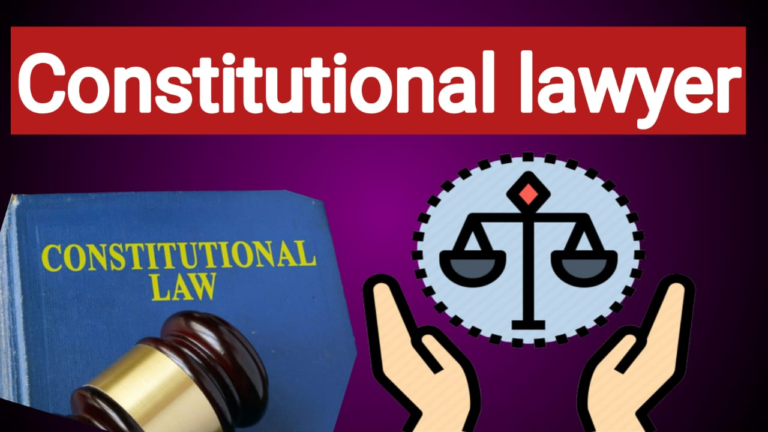ESTATE PLANING LAWYER

An estate planning lawyer, also known as an estate attorney or probate attorney, specializes in providing legal advice and assistance in creating and managing estate plans. Estate planning involves preparing for the distribution of a person’s assets and the management of their affairs during their lifetime and after their death. Here’s some information about the role of an estate planning lawyer and the services they typically provide:
Estate Planning:
An estate planning lawyer helps individuals create comprehensive plans that reflect their wishes regarding the distribution of their assets, healthcare decisions, and the care of their dependents. They assist clients in drafting legal documents such as wills, trusts, powers of attorney, and advance healthcare directives.
Will and Trust Formation:
Estate planning attorneys guide clients through the process of drafting wills and establishing trusts. A will specifies how a person’s assets should be distributed after their death, while a trust allows assets to be managed and distributed according to specific instructions, often with certain tax or asset protection benefits.
Asset Protection:
Estate planning lawyers can advise clients on strategies to protect their assets from potential creditors, lawsuits, or excessive taxation. They may recommend the use of specific types of trusts or other legal mechanisms to safeguard wealth and minimize tax obligations.
Probate and Estate Administration:
When a person passes away, their estate may go through a legal process called probate. Estate planning attorneys can assist the executor or personal representative in navigating probate proceedings, which involve validating the will, inventorying assets, paying debts and taxes, and distributing assets to beneficiaries. They can also help with estate administration for trusts or other non-probate assets.
Guardianship and Conservatorship:
In situations where individuals are unable to manage their own affairs due to incapacity or disability, estate planning attorneys can help establish guardianships or conservatorships. These legal arrangements appoint responsible individuals or institutions to make decisions and manage the personal and financial affairs of the incapacitated person.
Estate Tax Planning:
For clients with significant assets, estate planning lawyers can provide guidance on minimizing estate taxes through various strategies, such as gifting, charitable giving, or setting up trusts. They stay up to date with tax laws and can help clients structure their estate plans to maximize tax efficiency.
Business Succession Planning:
An estate planning attorney can assist business owners in developing succession plans to ensure the smooth transition of their business to the next generation or chosen successors. This involves addressing ownership transfer, management changes, and minimizing tax implications.
Working with an estate planning lawyer can provide peace of mind that your wishes will be legally protected, and your loved ones will be taken care of according to your intentions. They can customize estate plans to fit your specific needs and goals, keeping in mind legal requirements and potential tax implications.
When seeking an estate planning lawyer, it’s important to choose a qualified and experienced professional. Consider referrals from trusted sources, conduct interviews, and inquire about their expertise in estate planning and relevant areas of law.
Specialized Knowledge and Expertise:
Estate planning attorneys have specialized knowledge in the field of estate law. They stay updated on relevant laws, regulations, and legal strategies to provide clients with accurate and informed advice. They understand the complexities of estate planning, taxation, and asset distribution, allowing them to tailor plans to meet individual needs.
Customized Estate Plans:
Estate planning lawyers work closely with clients to understand their unique circumstances, goals, and concerns. They take into account factors such as family dynamics, financial situations, and personal values to create customized estate plans. This ensures that the plan reflects the client’s specific wishes and protects their assets in the most effective way.
Legal Guidance and Documentation:
Estate planning lawyers guide clients through the legal aspects of estate planning. They explain complex legal concepts, terminology, and the implications of different options. They draft and review legal documents, ensuring that they accurately reflect the client’s intentions and comply with applicable laws.
Updating and Reviewing Estate Plans:
Over time, personal circumstances and laws may change, necessitating updates to estate plans. An estate planning lawyer can assist with periodic reviews to ensure that the plan remains current and aligned with the client’s wishes. They can make necessary revisions, such as adding or removing beneficiaries, updating powers of attorney, or adjusting trust provisions.
Family and Succession Planning:
Estate planning attorneys consider the broader implications of estate plans on family dynamics and long-term wealth preservation. They assist clients in addressing complex family situations, such as blended families, special needs dependents, or disputes among beneficiaries. They help clients create comprehensive plans that promote family harmony and ensure a smooth transfer of assets from one generation to the next.
Mediation and Dispute Resolution:
In the event of disagreements or disputes among family members or beneficiaries, estate planning lawyers can provide mediation services or guidance on dispute resolution. They work to resolve conflicts in a fair and amicable manner, helping to preserve relationships and minimize the need for costly and lengthy litigation.
Charitable Giving and Philanthropy:
Estate planning lawyers can advise clients on incorporating charitable giving into their estate plans. They can help establish charitable trusts, foundations, or other philanthropic vehicles that align with the client’s philanthropic goals. They ensure that charitable contributions are structured in a tax-efficient manner while supporting causes that are meaningful to the client.
Confidentiality and Privacy:
Estate planning lawyers understand the importance of maintaining client confidentiality and privacy. They handle sensitive personal and financial information with discretion, ensuring that the details of the estate plan remain confidential and protected.
Remember, estate planning is a highly personalized process, and the services provided by an estate planning lawyer can vary depending on individual needs and goals. Engaging an experienced estate planning attorney can provide valuable guidance, legal protection, and peace of mind throughout the estate planning process.






